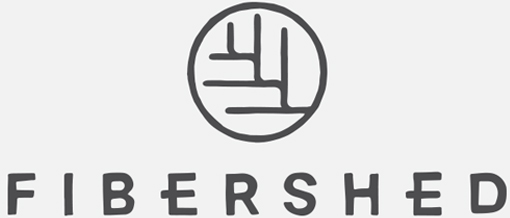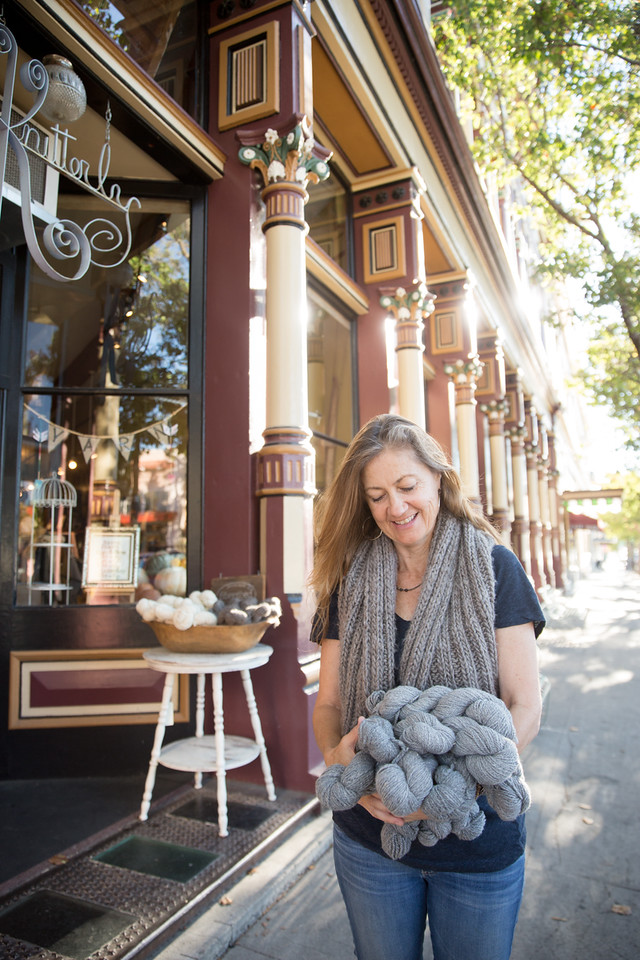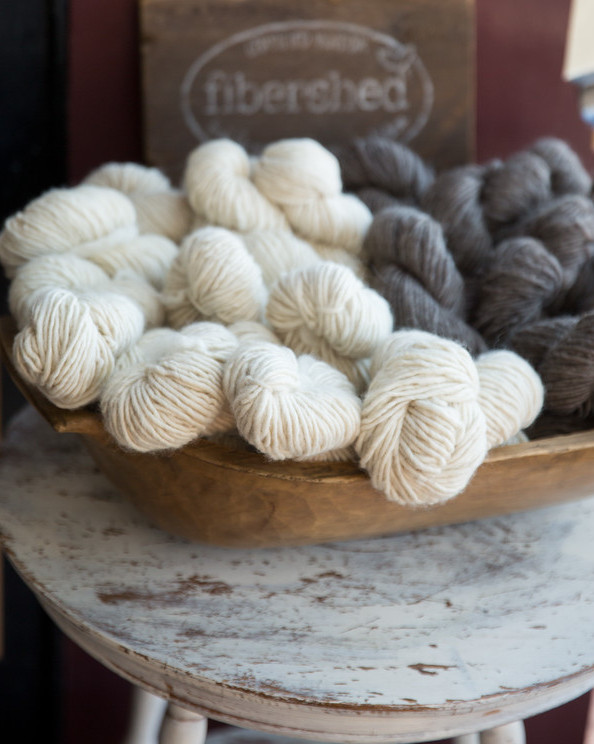Written by Jess Daniels; photography by Paige Green, except where noted
Shelli Westcott describes her world through touch and tactility; color and arrangement play a role, but texture, hand, and layering are forefront. This explains, in part, why she felt it was imperative that she dig her hands deeply into the creation of the second series of Radius Yarn for her shop, Knitterly.
The first incarnation of Radius grew out of Shelli’s relationship with Mimi Luebbermann, a close neighbor and Knitterly customer. Shelli had long admired the softness and earthy natural colors of the yarn that Mimi produced from her animals at Windrush Farm and sold at farmer’s markets under the name Local Pastures, so when the opportunity arose to stock the yarn at Knitterly, Shelli quickly accepted. Dreaming of an expanded line of yarn from the surrounding landscape, Shelli spent a long time thinking and conversing about a name, but she wanted to embrace the idea of a fibershed, so kept coming back to the idea that “it has to be in this 150 mile radius.” Radius fit the bill, evoking locality, minimalism, and sounding just “a little like a rock band.”
At the 2014 Wool & Fine Fiber Symposium, Shelli met Julie Rosenfeld of Renaissance Ridge Alpacas, picked up a skein of her alpaca yarn, and “fell totally in love with it.” Westcott arranged to buy all of Renaissance Ridge Alpacas’ next clip, and in the interim she continued searching for fiber to build the Radius line. While still a pillar of the community, Windrush Farm has reduced their flock size to better maintain the land with limited water in the face of drought, so Westcott knew she would need to diversify her wool supply. She found a local shearer who connected her with additional fleeces from within the Fibershed.
As soon as she saw the freshly shorn wool, Westcott was struck by the beauty of the fleece: “I don’t know how to describe it, the browns and golden and grays, these beautiful lustrous curls… I thought, ok I’m digging in here, I’m going to do this all myself, I’m going to wash these. I want to understand the whole process, so I really see what’s going on”
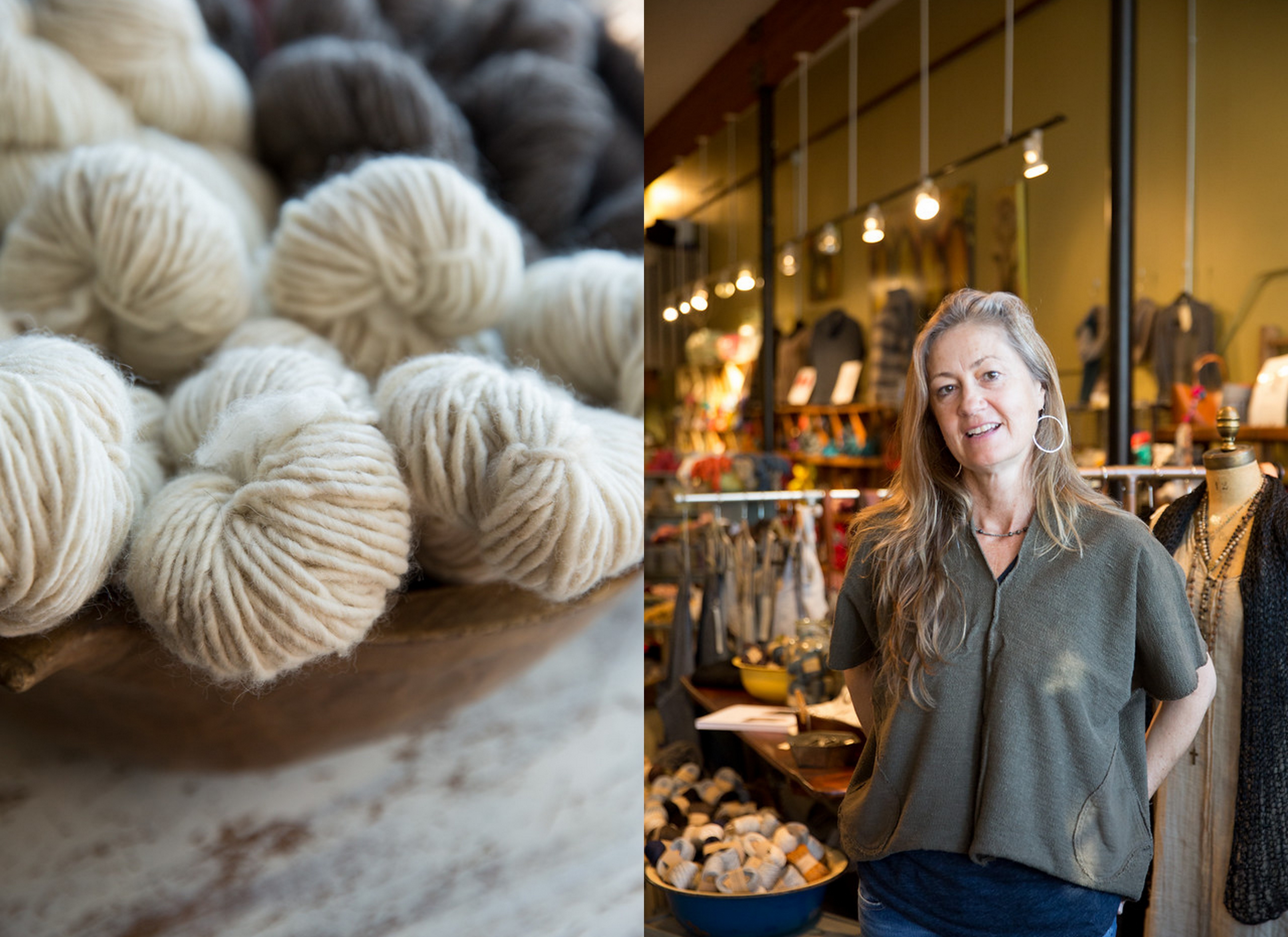
For over five years, Knitterly has carried the Napa-produced and processed Twirl Yarn by Fibershed Producer Mary Pettis-Sarley. Twirl has become not only a shop favorite and local souvenir for shoppers traveling through Petaluma, but a source of education and conversation for customers. Westcott, too, has learned so much from Pettis-Sarley, from farm tours and animal breeding intricacies to natural dyeing and fiber blending. Out of these relationships has grown a deep respect for local producers. According to Westcott, making a local yarn “is a labor of love… The yarn is beautiful, but I think what I always really responded to is that the people who own the animals that the yarn comes from have so much appreciation and love for the animals, it comes through in the yarn. I wanted Radius to feel that, the same love you feel when you touch Mary’s and Julie’s and Mimi’s yarn” — that’s why she wanted to get a feel for the whole process.
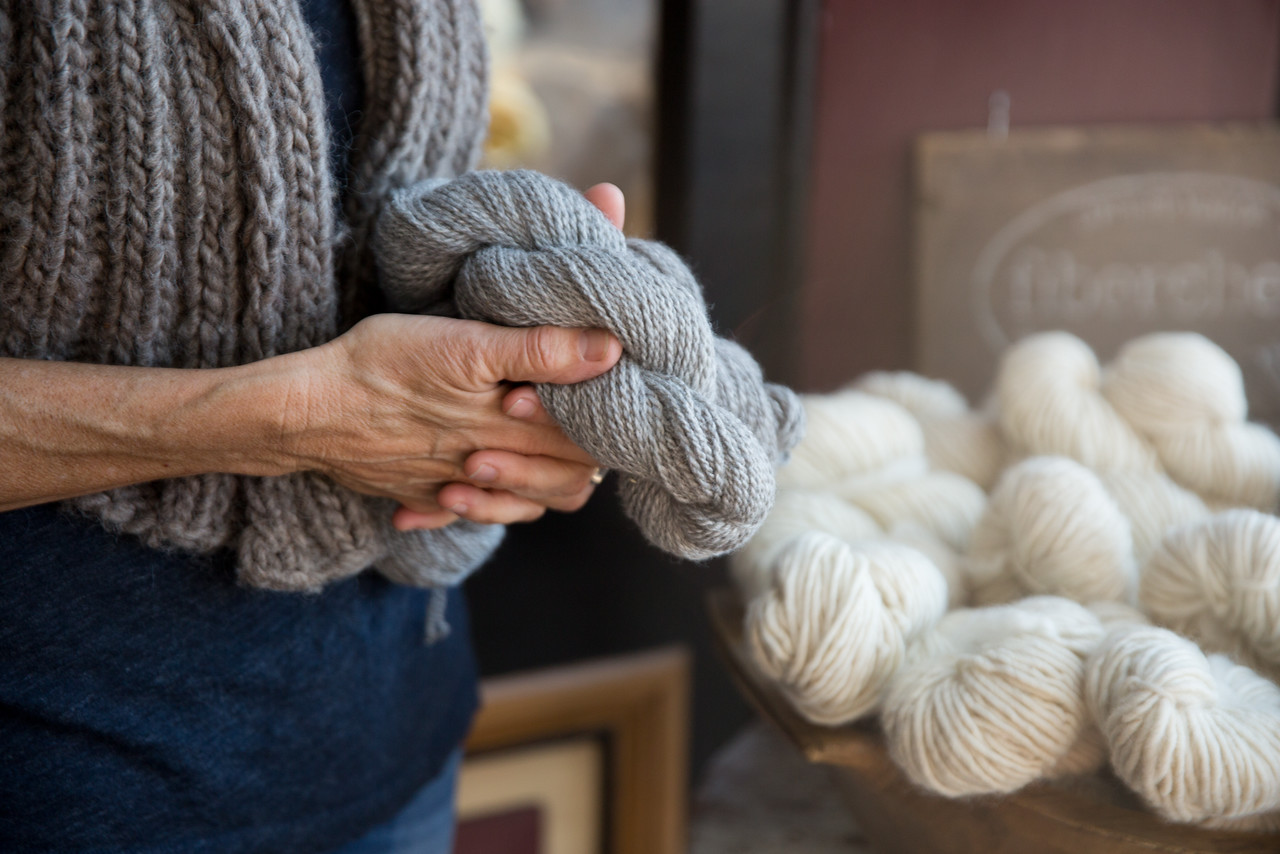 “If you’re talking about business, what I did was a really bad business move … but I didn’t want to make money, I wanted to be able to be completely honest and authentic with the product, and take it to the mill myself.” So Westcott set up a system surrounding her house: she crafted a sink with 2 sump pumps to reuse water, washed the fleeces by hand with eco-detergent, and laid them to dry on metal sheets lining her garden and side yard. The process was time consuming but eye opening. “The amount [of water] it takes to wash the fleeces is incredible” she said, which changed her view on what it means to make local products with a beneficial footprint. Even though she made every effort to reduce the amount of water used, Westcott still couldn’t bear to pour it down the drain, so she watered her garden and has joyfully grown her “best roses ever.”
“If you’re talking about business, what I did was a really bad business move … but I didn’t want to make money, I wanted to be able to be completely honest and authentic with the product, and take it to the mill myself.” So Westcott set up a system surrounding her house: she crafted a sink with 2 sump pumps to reuse water, washed the fleeces by hand with eco-detergent, and laid them to dry on metal sheets lining her garden and side yard. The process was time consuming but eye opening. “The amount [of water] it takes to wash the fleeces is incredible” she said, which changed her view on what it means to make local products with a beneficial footprint. Even though she made every effort to reduce the amount of water used, Westcott still couldn’t bear to pour it down the drain, so she watered her garden and has joyfully grown her “best roses ever.”
As a master gardener, and with a previous career in landscaping, Westcott knows a thing or two about roses. More so, she understands that “everything you buy, if you think about the effect on the soil, that’s the biggest impact you could ever make.” She advocates for knitting with farm yarns not just because of the ethical considerations or local economic stimulus, but because it’s possible to know the soil and trace each aspect of the process, back to the foundation of the landscape – from grazing to washing the fleece and later perhaps dyeing the yarn.
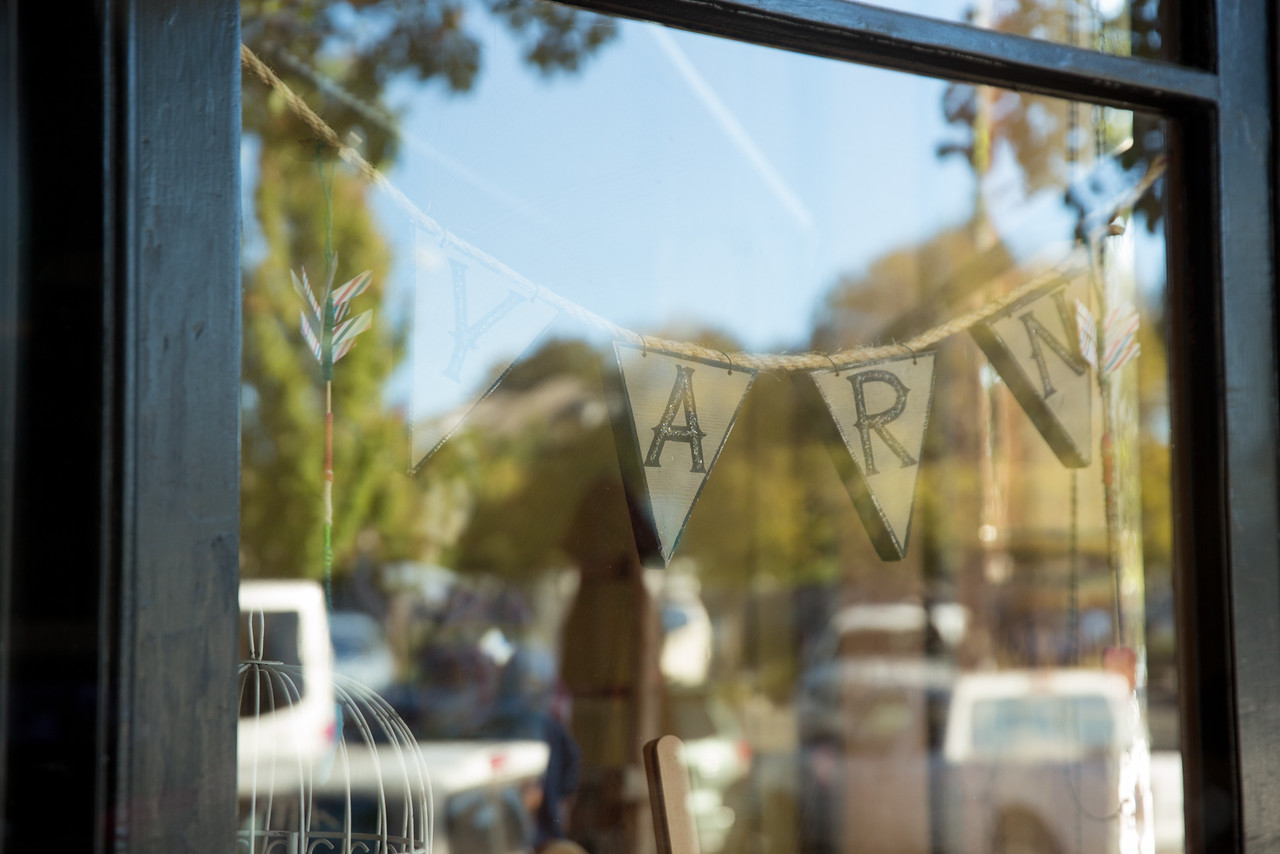
Westcott tries to connect each knitter back to the soil too, telling shop visitors about the farms and people and landscape behind each of the Fibershed products she carries: Radius, Twirl, and HIJK. When asked how soil to skein products have affected the business, she says: “The biggest impact is that I can feel confident adding more & more products that I believe in, because I feel confident that I can sell them because I believe in them. Ten years ago you couldn’t sell farm fresh yarn to save your life… People got this idea with acrylic and super wash that it had to be super soft, but actually it’s going to pill more and it’s not necessary.”
Now, she sees more and more knitters drawn to farm yarns — “People can actually feel the realness of it… That’s what I think is happening.”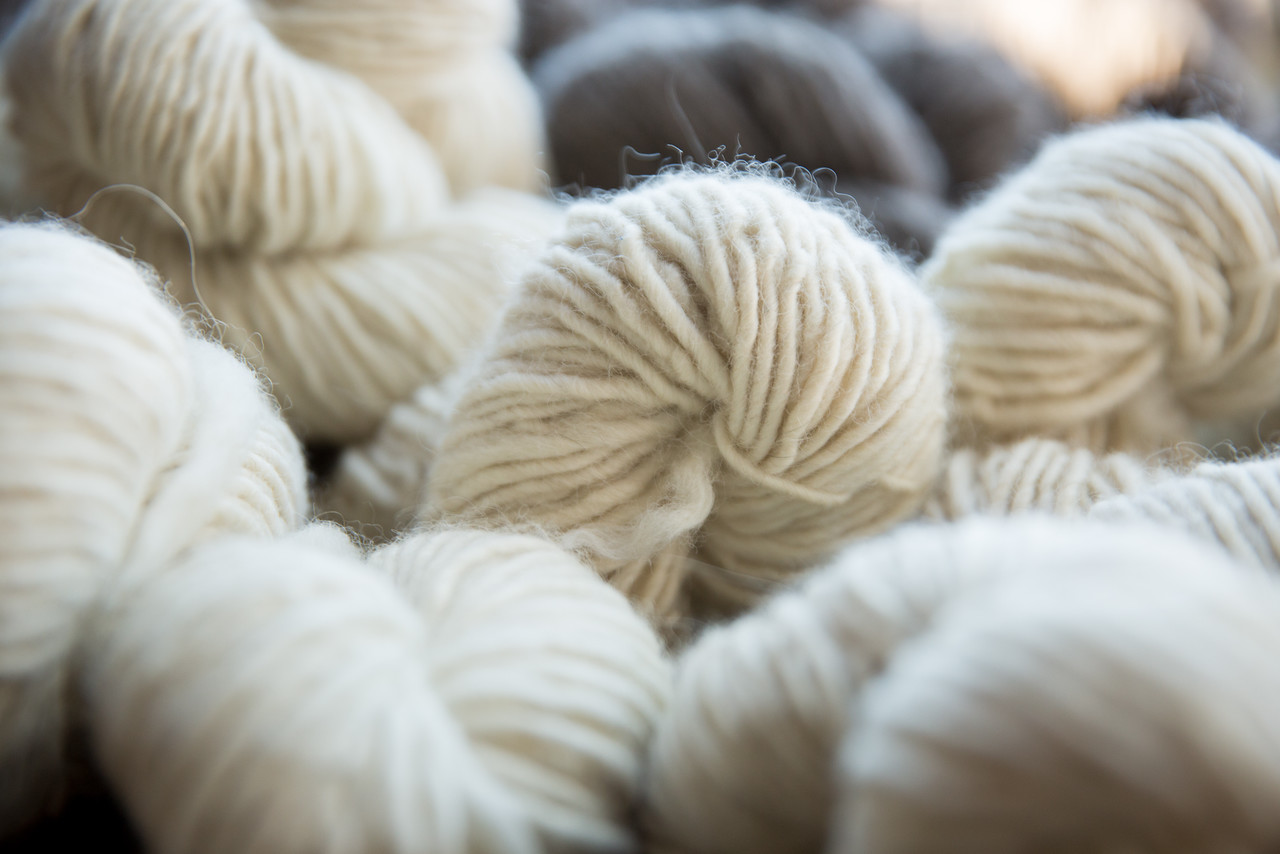
Stepping inside Knitterly, knitters find inspiration in the narratives behind each farm yarn, and the sample garments that perfectly showcase the wearability and color combinations. Whether you’re a new or experienced knitter, Westcott recommends her Moto Vest pattern, a customizable and chic layering piece inspired by street style in Europe. In a finer gauge yarn like Twirling Petals, the Moto Vest could be a drapey, elegant contribution to your wardrobe, while in one of the worsted Radius blends it would quickly become a cool weather essential, keeping your core warm without limiting your movement. If you can’t make it to the shop, you can see a variety of beautiful Moto Vests online here, and purchase both yarn and pattern in the Knitterly webshop.
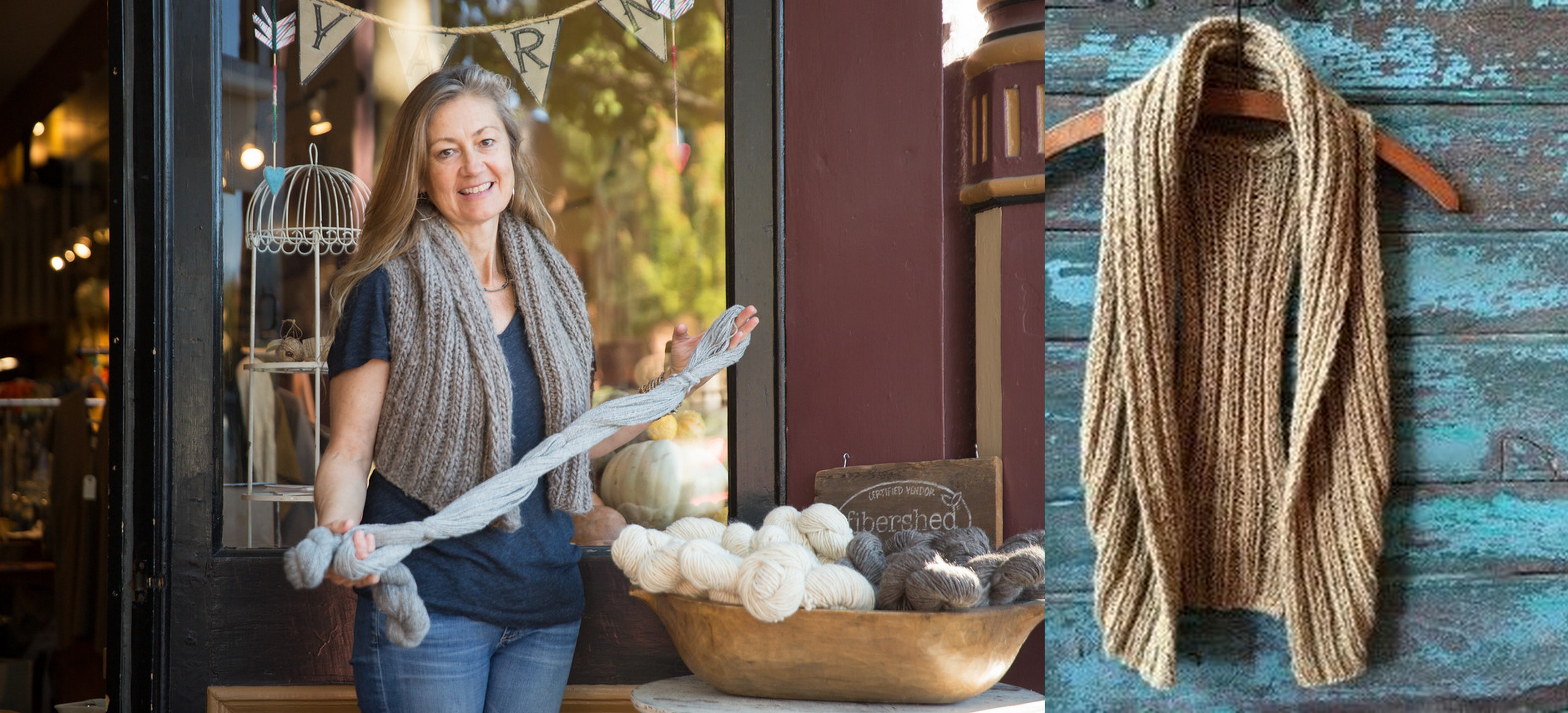
Westcott is a layering aficionado, in knitwear and in the antique and salvaged furniture she carefully sources and repairs into shop displays. She traces this back to her landscaping roots: “it’s very related… the layering of different needs and colors [in landscaping]. It’s the same with knitting, looking at texture, what’s appropriate.” She is continually inspired by nature, by “the color of lichen on a rock, or wild turkeys having amazing color—coral and gray; nature doesn’t do anything wrong.”
Producing Radius deepened this connection, and “reinforced the instinct of how good nature is… These fleeces [were] so gorgeous! [And] That’s how the sheep were made, same with the alpacas.” Westcott seeks this grounding effect of natural beauty when she travels too, stopping to see the soil, touch the local brick and stone, and experience the materials produced in a place. “I feel a real connection to things like hand forged metal and hand sewn flags. I love anything handmade. Seeing all the sheep is exactly the same — it’s very handmade to me.”
Explore hands-on connections to the local landscape, from soil to skin, at the Fourth Annual Fibershed Wool & Fine Fiber Symposium, November 7th at the Dance Palace in Point Reyes Station. Experience fiber processing from sheep to skein with expert demonstrations, and learn about the carbon sequestration potential of our soils. Tickets are available at wool-symposium-2015.eventbrite.com
Knitterly is located in downtown Petaluma and has an online webshop. Follow Knitterly on Facebook and Instagram for the latest details on yarns and classes. If you’re a Fibershed producer interested in stocking products at Knitterly, contact Shelli Westcott by email: knitterly [at] comcast.net
